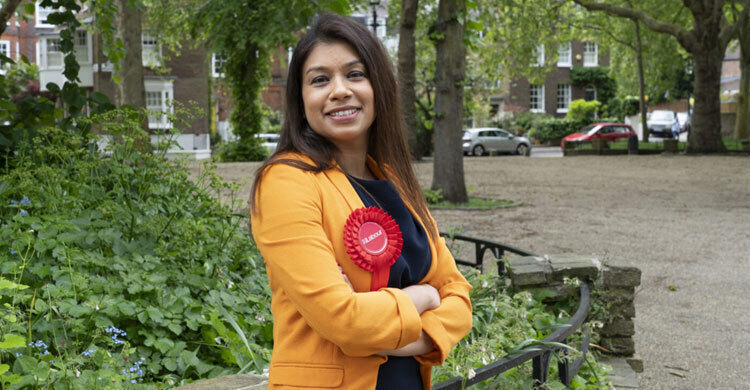The National Crime Agency (NCA) of the UK is assisting investigators in Bangladesh as they probe corruption claims against Tulip Siddiq.
Officers from the UK have traveled to Dhaka to support authorities investigating allegations that the former Economic Secretary to the Treasury benefitted from a controversial nuclear power plant deal, reports British daily The Telegraph.
Siddiq is accused of receiving privileges through her aunt, Sheikh Hasina, the former Prime Minister of Bangladesh, who was ousted last year after 15 years in power.
The Labour MP was forced to resign from the frontbench last month after Sir Keir Starmer’s ethics adviser found that she had inadvertently misled the public over the scandal.
Tulip, whose brief as Treasury minister had included combating corruption, had referred herself after weeks of questions over her use of properties in London linked to her aunt’s political party.
Bangladesh’s anti-corruption commission is investigating Tulip, Hasina and other members of their family for alleged embezzlement of £3.9 billion connected to a Russian-funded nuclear power plant.
Now details have emerged of the involvement of British police in the probe. The NCA first visited in October last year to offer assistance to the Bangladeshi government in recovering billions that were allegedly siphoned off by Hasina and her allies.
It is understood that officers have offered to assist the authorities hoping to “bring about a prosecution” in Bangladesh.
Sources in the country told The Mail on Sunday that the meeting raises the prospect that officers could be gathering evidence against the Hampstead and Highgate MP for a potential criminal case in the UK.
During meetings the NCA team asked questions about Tulip specifically, it is claimed. Tulip denies any wrongdoing.
The NCA is one of the bodies responsible for looking at allegations of international bribery and corruption linked to the UK. It can investigate individuals suspected of money laundering in the UK from political corruption abroad and allegations of bribery and corruption against UK nationals.
Tulip’s aunt Hasina, 77, is now in India, having been ousted last August following violent protests.
During her tenure, opponents were attacked, arrested and secretly imprisoned as the regime carried out extrajudicial killings. The former prime minister and her allies are also accused of looting billions from the country.
Since her fall, Bangladesh’s anti-money laundering agency has asked the country’s main banks to supply information on Tulip’s accounts and transactions in the country.
In an official notice, it has requested the financial records of Tulip and six of her family members including her mother, sister and brother.
A spokesman for Tulip said: “Absolutely no evidence has been presented for these allegations. Tulip Siddiq has not been contacted on these matters and totally refutes the claims.”
An NCA spokesman said: “We do not routinely comment on the nature of international assistance, nor confirm or deny if the agency has opened an investigation or is supporting a partner’s investigation.”
A senior anti-corruption commission official told the Telegraph: “The investigation into Tulip Siddiq is still at a preliminary stage, but we are actively examining multiple angles.
“Our focus is on uncovering any links between her and the acquisition of properties through illicit means in Bangladesh, her associations with corrupt businessmen, and potential connections to money laundered out of Bangladesh.”
Ahsan Mansur, Governor of the Central Bank of Bangladesh, said: “We greatly appreciate the support of the British Government and international investigative agencies in our efforts to trace the billions of dollars laundered from Bangladesh to the UK and beyond.
“Recovering these funds is a top priority for us, and we are counting on global cooperation to bring this money back where it belongs. We have already begun reaching out to various governments and global agencies to tackle this issue head-on.
“The UK has been cooperating with us in this effort, and our next step is to identify the properties and bank accounts where the laundered money has been stashed across different countries, including the United Kingdom. We are committed to taking decisive action to reclaim these funds and hold those responsible to account.”

